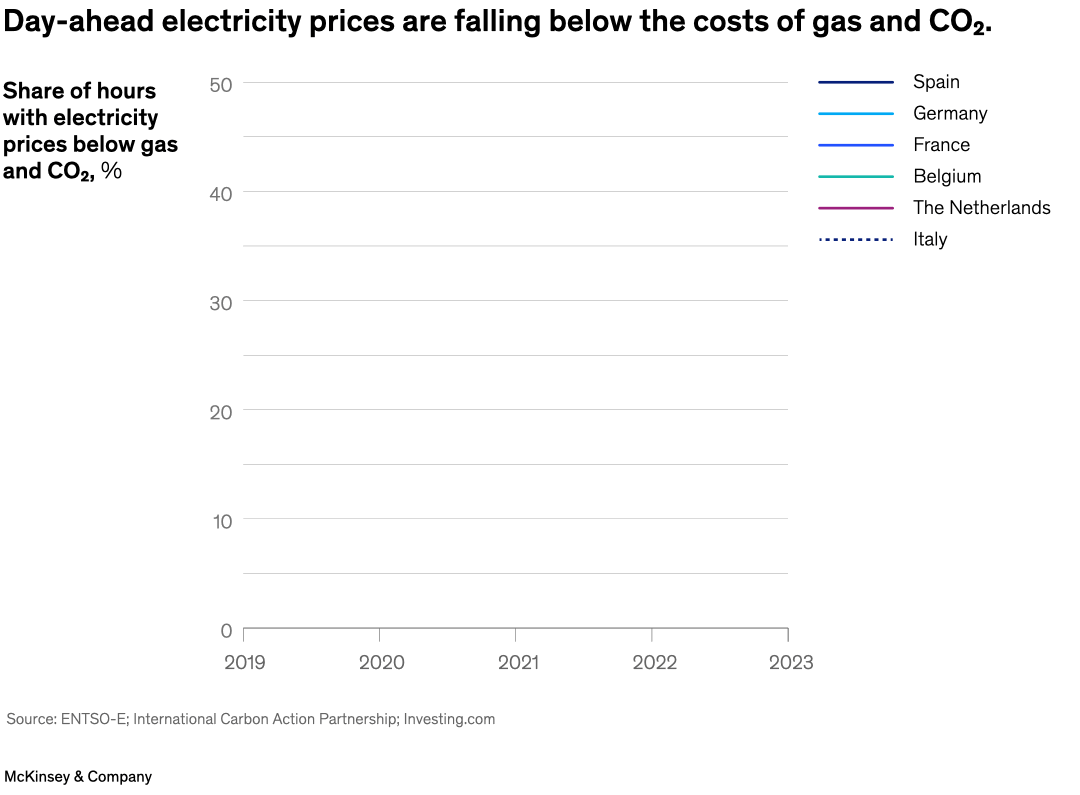In many European countries (where industry must pay for CO2 emissions), the price of electricity is falling below the costs of gas and of CO2 emissions, making it increasingly feasible to electrify industrial heat processes. Partner Joris van Niel and colleagues observe that electricity is cheaper than fossil fuels for a growing share of hours in countries such as France, Germany, and Spain. Electrifying industrial heat could significantly reduce greenhouse gas emissions, while also leading to cost savings for businesses.

Image description:
A line graph shows the share of hours where electricity prices fell below the costs of emissions from gas and carbon dioxide in 6 European countries. Overall, day-ahead electricity prices are falling below the costs of gas and carbon dioxide. The breakdowns per country for the share of hours with electricity prices lower than gas and carbon dioxide prices are as follows:
- Spain: The share of hours increased from 2% in 2019 to 46.7% in 2022 and then decreased to 26.3% in 2023.
- Germany: The share of hours increased from 7.4% in 2019 to 25% in 2022 and then fell to 20.4% in 2023.
- France: The share of hours increased from 6.1% in 2019 to 12.8% in 2022 and increased to 20.3% in 2023.
- Belgium: The share of hours increased from 5.2% in 2019 to 20.1% in 2022 and decreased to 19.5% in 2023.
- Netherlands: The share of hours increased from 1.1% in 2019 to 19.6% in 2022 and decreased to 19.3% in 2023.
- Italy: The share of hours fell from 0.7% in 2019 to 0.6% in 2021, and increased to 5.1% in 2022 before dropping to 3.9% in 2023.
Source: ENTSO-E; International Carbon Action Partnership; Investing.com.
End of image description.
To read the article, see “Net-zero electrical heat: A turning point in feasibility,” July 16, 2024.